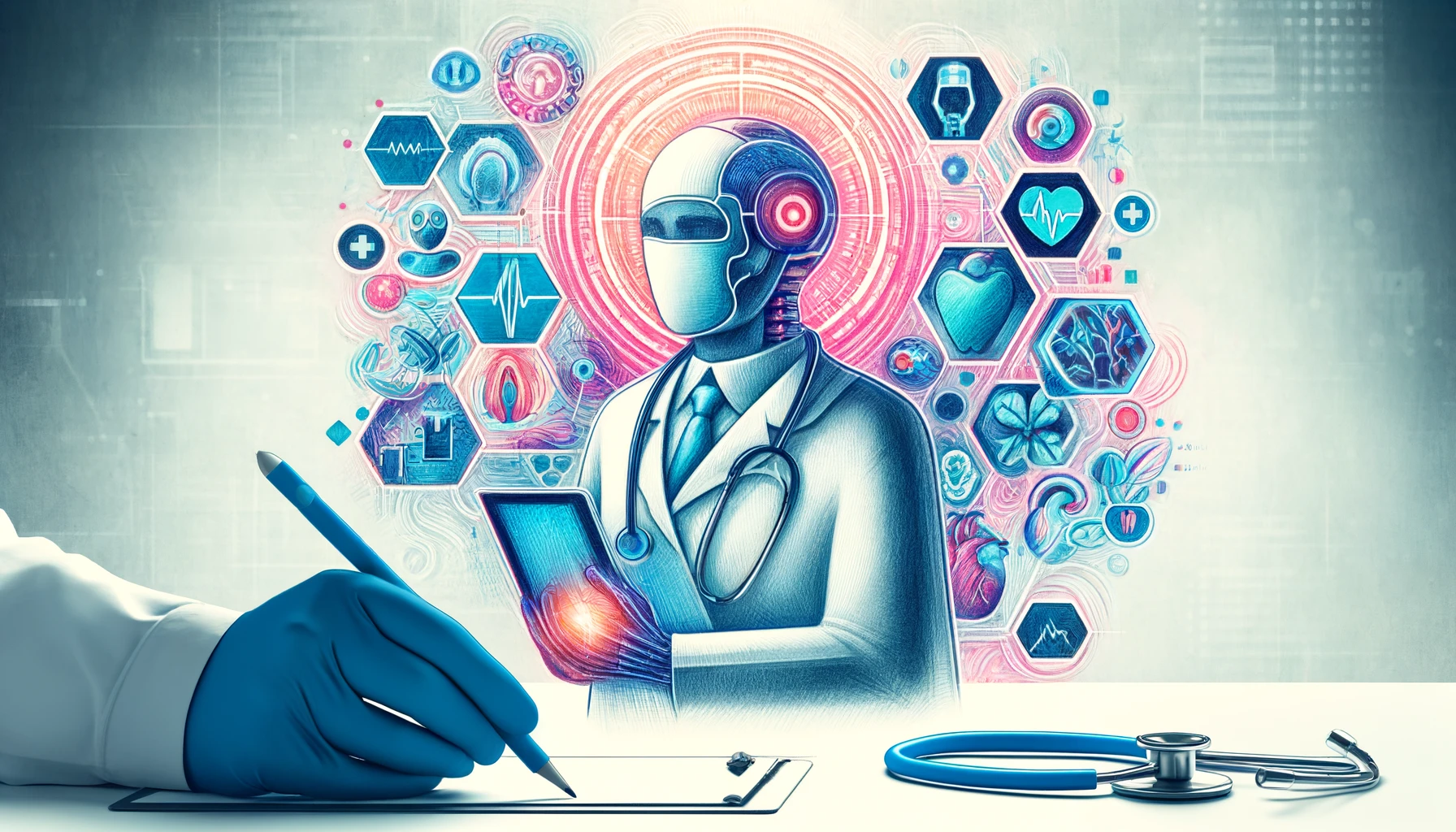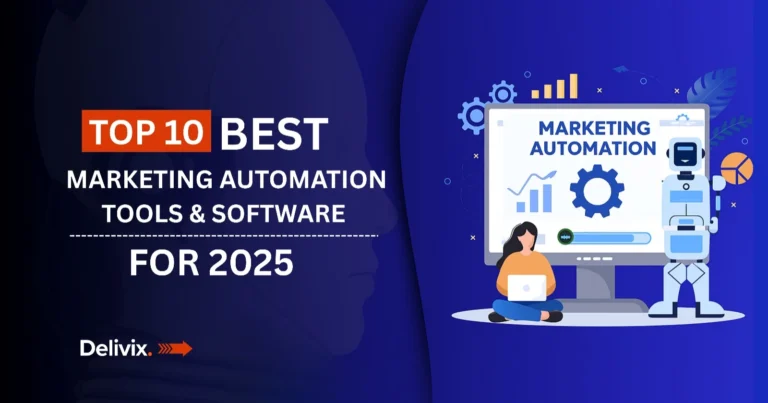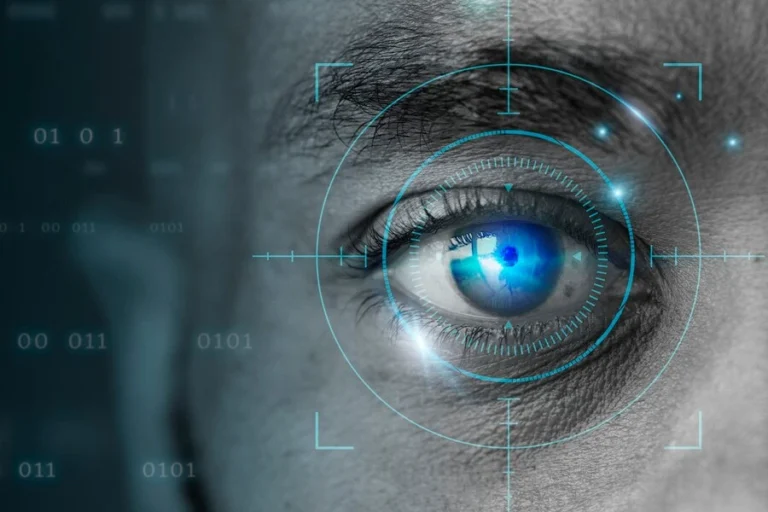One of the hottest topics in the news, and something that is also changing the world very quickly, is artificial intelligence, which is a combination of technologies that allow computers to perform human-like roles and functions. Most of the stories about artificial intelligence revolve around how it is a threat to the jobs, privacy, and security of humans. On the other hand, you also hear the exciting benefits and potential of AI in healthcare and medicine. But, not everything you read online is accurate.
As AI is all set to transform the future, it is important to learn more about it. In this blog, we will discuss AI, its role in healthcare, applications in medicine and medical diagnosis, and the future of AI while keeping ethical concerns in mind.
What is AI?
Artificial intelligence is a technology that combines fields, such as computer science, statistics, data analytics, and information technology, and allows computers to perform tasks that need human intelligence and thinking. Machines and computers using AI can analyse large amounts of data, recognise patterns, make decisions and predictions, and even understand human language.
What is AI in healthcare?
Before we explain what is the potential of AI in healthcare, it is important to know what it is, its uses, and what is the meaning behind the term “AI in Healthcare”. AI in healthcare means using artificial intelligence and its applications such as deep learning, machine learning, and predictive models to improve the lives of both patients and doctors.
With the help of this technology in healthcare and medicine, doctors can make accurate predictions about diseases and offer the best treatments quickly without wasting their time and resources. Some of the common uses of AI in patient care and healthcare are:
| Sr | Uses |
|---|---|
| 1 | Discovery of Drugs |
| 2 | Managing Hospital & Healthcare Data |
| 3 | Performing Surgery With the Help Of Robots |
| 4 | Improving Diagnosis Of Health Diseases |
What are the benefits of AI in healthcare?
Artificial intelligence is advancing in the field of healthcare because of the development in the field of big data analytics and the increase in the use of machine learning and deep learning technologies. Hence, it has become a necessary tool in medical diagnosis. Here are the main benefits of AI in healthcare:
- According to the Harvard School of Public Health, using artificial intelligence in medical diagnosis reduces the cost of treatment by up to 50% and improves the chances of accurate health predictions by 40%.
- A recent study has suggested that a patient’s worst experience is because of harsh and poor communication by healthcare professionals. AI tools and healthcare software can enhance the patient experience by answering health questions, providing 24/7 support, and even scheduling appointments. This makes the lives of both patients and doctors less stressful.
- AI uses machine learning algorithms and data to grow faster and make predictions. By using AI in healthcare, it can understand large amounts of medical data and even examine patient records to find patterns. Such patterns can help in finding the right diagnosis for patients better than some doctors. For instance, a published study found that AI recognised skin cancer better than 58 international dermatologists.
- WHO has outlined six major principles to make AI beneficial and safe to use for human healthcare called the Ethics & Governance of Artificial Intelligence For Health. Some of them include protecting patient rights, being transparent and accountable, and using sustainable and safe tools for medical diagnosis.
Want AI solutions for your company?
From chatbots to automation & predictive analytics, we help businesses get the most out of AI.
Boost efficiency. Reduce costs.
Book a ConsultationHow is AI being used in healthcare?
AI tools and software in healthcare are still changing ,but different AI algorithms, such as natural language processing and deep learning, are already improving patient experience, managing patient records, and even recognising diseases. Let’s understand how they work:
Machine learning
Machine learning uses data analysis to examine data and make predictions. This technology examines patient records, their history, and medical data to identify patterns and make an accurate diagnosis. It not only helps healthcare professionals save time but also reduces the cost of diagnosis and keeps improving with changes.
For instance, it uses AI algorithms to examine electronic health records to predict diabetes or heart diseases.
Deep learning
Deep learning is another model of AI that is more complex than machine learning, as it works exactly like the human brain when it processes the data. It works on larger and more complex data such as X-rays, CT scans, and MRIs and uses neural networks to study every part of the data to find medical problems like fractures and tumours.
We will see that using this technology in clinical settings and healthcare diagnosis will become important for doctors in the future, as it plays a very important role in understanding the potential of AI in healthcare.
Natural language processing
NLP is another important element of artificial intelligence that helps computers understand human language and use it to improve healthcare predictions. This technology examines data, such as medical records, clinical notes, and patient prescriptions to identify genetic information, patient medical history, symptoms, etc so that doctors can make decisions quickly. It can also help in diagnosing health conditions without much cost.
Apart from this, administrative tasks can be easily done, like helping patients by answering their queries or summarising long patient records.
Computer vision
Computer vision is often combined with deep learning to analyse medical images such as CT scans, and X-rays to find any diseases such as tumours or fractures. It can also be used to monitor how much the disease or health problem has progressed.
However, as deep learning becomes necessary in healthcare settings, computer vision becomes important as it plays a huge role during robotic surgery to make sure that everything is done precisely.
Predictive analytics
Predictive analytics is an important part of artificial intelligence that uses historical data of patients to make future predictions. By identifying these risks before they happen, doctors can prevent healthcare problems for patients and also save lives.
For instance, this technology in AI can predict which patient has a higher chance of developing diabetes or who has a chance of being readmitted to the hospital by studying their genetic information
Discussing the potential of AI in healthcare & medical diagnosis
The potential of AI in healthcare is increasing daily. It is not only being used to improve diagnosis and disease predictions but also for making treatment plans for patients and understanding how diseases are developed. Here is the potential of AI in healthcare and medical settings:
AI can detect heart diseases
Smart stethoscopes having AI-based technology can detect heart diseases like heart failure; a condition where the heart cannot pump blood properly. This technology can find out if a patient has a risk of developing heart failure or symptoms of it better than the A&E departments in a hospital.
Recent research has shown that smart stethoscopes can detect heart failure 90% accurately. Hence, AI uses patient data like age, blood type, and other additional information to decide if the patient has a risk of developing heart problems or not, and reduce unnecessary hospital admissions.
AI can diagnose lung cancer
Lung cancer is one of the most common causes of death all over the world. 35 people out of 100 who get CT scans have nodules in their lungs. Not all nodules are cancerous but the majority of them are, which is why AI technology is improving the diagnosis of lung cancer by examining the nodules for small masses or clots.
By using deep learning and computer vision, AI can detect lung cancer better than the Brock score. The Brock Score is a traditional way of detecting lung cancer, which is not so accurate as compared to AI. Besides studying the size, and location of the nodule, an AI-based technology can detect patterns and changes that can be ignored by doctors or other traditional methods.
Apart from this, AI can also predict how lung cancer cells will react to different drugs and medications, which helps doctors and researchers in selecting the best treatment plan for cancer patients.
AI can predict the progression of a disease
AI can also be used to predict the progression of numerous diseases. For instance, Wet AMD is a serious eye disease that develops in older adults where abnormal blood vessels grow in the back of the eye. Before AI, doctors could not predict the progression of these diseases from one eye to the second eye. However, since AI is being used in eye and OCT scans, doctors can understand which patient is at a higher chance of developing wet AMD in the second eye as well. This helps them provide healthcare interventions such as laser therapy before a patient loses sight. Hence, the use of AI in disease professions improves the quality of life of patients.
Similarly, using AI to analyse biopsy samples of Ulcerative colitis patients can help doctors understand how to provide treatment and prevent flare-ups. This helps in ensuring that patients are not hospitalised.
AI can help in robotic surgery
Hospitals and doctors have been using AI-driven robots to help with small surgeries to something as big as open heart surgery. Surgeons use robots with remote-controlled technology or computer consoles to perform surgeries where the robot gives the doctor a full three-dimensional view of the body part where the operation is being done.
Additionally, surgeries that have been carried out with AI technology and robots have shown quick recovery and less pain.
AI can predict demand for hospital beds
AI models have been greatly used to predict the number of resources needed for a hospital to function effectively. This technology and tools can also be used to predict the number of hospital beds and the number of occupied beds that are needed by examining historical data on hospital resources, current cases, and medical records. This type of predictive analysis was used during COVID-19 to prepare hospitals to take important measures to increase their capacity to deal with patients.
AI can help with A&E attendance
AI is being used in emergency medical services to determine whether the patient should be transported to the hospital depending on the symptoms and signs to reduce overcrowding in healthcare settings and hospitals. With the help of AI, paramedics can decide if a patient requires emergency medical services or can be managed somewhere else. This allows them to focus on cases that should be their highest priority.
Companies using AI in healthcare
Here are some well-known companies that are using AI in healthcare:
| Name | Location | Use of AI |
|---|---|---|
| EliseAI | New York | This company makes AI software for healthcare settings that perform administrative tasks like scheduling appointments and sending payment reminders |
| Babylon | Texas | Babylon uses AI-based symptom checkers to provide healthcare guidance and up-to-date medical information. |
| Cohere Health | Boston | This company uses AI technology to speed up the process of patients that need approval before their treatment starts. |
| Butterfly Network | Burlington | Butterfly Network creates AI-driven healthcare innovations, such as ultrasound devices that connect to smartphones and provide quick scans. |
| Flatiron Health | New York | This company uses AI in oncology software to improve cancer treatments. |
Conclusion: What is the future of AI in medicine & healthcare?
The future and potential of AI in healthcare seem exciting and will make a huge difference in how doctors treat patients. It is already enhancing patient experience by providing personalised treatment plans and helping healthcare professionals to make accurate diagnoses. However, AI needs to be used ethically and responsibly in medical and clinical settings so that complications in the future can be avoided.
However, this is not the main challenge. Doctors and other healthcare professionals need to find ways to use AI in such a way that it helps them improve patient care rather than replace them. Overall, AI is ready to transform the future of AI in medicine, but it will take some time to make it a permanent part of healthcare worldwide.
Read More: Free Artificial Intelligence Apps


